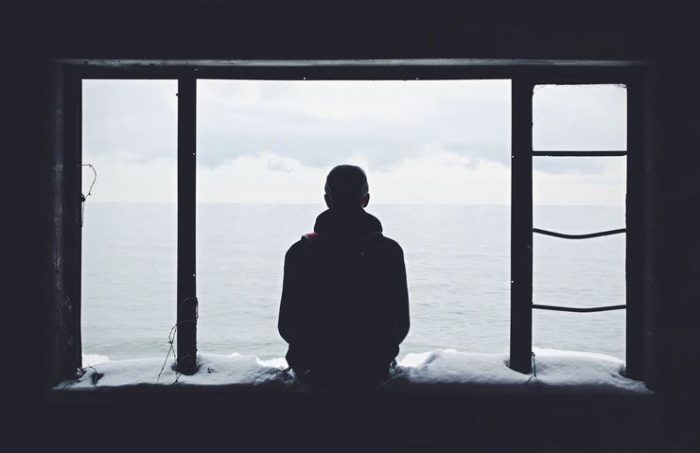F*cking emotions.
I felt the jolt of lightning inside me, like alarm bells, like something had broken. I had nothing to grab onto as a storm of grief, fear, and rage rapidly swelled up from deep inside. I recognized these feelings as all the things I kept locked away. They had escaped, rising swiftly on tides that would surely overwhelm me.
I was powerless to stop it. As my eyes welled up, I did the only thing I could do—excused myself from one room to find a quiet corner of another—stepping into the shadows of grief and shame. Acid tears rolled down my face, burning away my defenses, and for a split-second, I was alive.
I was an expert at keeping my issues hidden. No one really knew me—hell, I barely knew myself. My facade was well crafted—confident, secure, and successful. But signs of trouble were there—I could be argumentative, angry, shut down, or nasty.
It was far easier for me to show aggressive traits than the feelings driving them—fear, insecurity, shame, low self-worth, and uncertainty.
I’d learned early on that discussing those parts of myself was a no-no. No one wanted to hear it anyway—not friends, not lovers either. It became clear that revealing my softer sides meant risking my manhood—and there was no f*cking way that was going to happen.
Vulnerability was weakness.
But every so often, after patiently lying in wait, my coiled-up feelings would take advantage of a momentary lapse in my defenses and explode out of tiny cracks in the walls meant to keep them away.
These breakdowns happened more often than I’d like to admit, and it would scare the crap out of me, taking all my strength to stuff my feelings back where they belonged.
I kept that to myself—there was no way to share my emotional side without the risk of appearing weak, inadequate, and unworthy of my masculinity.
In Untamed, Glennon Doyle writes:
“The parts of themselves that our boys have banished are not feminine traits, they are human traits.”
Growing up around alcoholism wasn’t easy and I struggled. We never shared feelings in our family, and I never learned to express myself emotionally—instead, we practiced what I thought were the expected norms of masculinity—to be ambitious, tough, and stoic.
There were no conversations about insecurities, disappointments, fear, or anxiety—feelings that silently consumed me. I had no idea what to do with them—I only knew there must be something seriously wrong with me.
I didn’t want to feel that way anymore. I locked my feelings away and stepped in line to learn the chorus of masculinity that my friends all sang: “Be strong, be a man.” And most of all, “Don’t be a p*ssy.”
I sang loud and tried to fit in—the scars of schoolyard tribunals were effective reminders of what happens to boys who don’t.
We are systematically trained like circus animals—learning what to share, and how to act. Status, dominance, and physical control were acceptable, while anything soft or feminine was not.
Truth is, men live in cages too.
As an adult, the person I was on the surface became separate from the turbulent, raw, unprocessed emotions trapped below. Living like this hadn’t worked for me. I felt isolated, and my relationships suffered. I continued on this way until the sudden unraveling of my marriage—something so painful that it caused me to lose control:
I’m pacing in short frantic bursts, consumed by a ball of grief, loss, and anger. I can’t think. My eyes are open, but I only see two feet in front of me. The dam breaks—I let out a loud, desperate cry—a sound and fury so unfamiliar that it scares me back into silence.
For a moment I’m still, grasping for control as voices from the past race through my mind—“Be strong. Be a man. Don’t be a p*ssy.”
But I can’t hold back any longer. My pain and frustration turn to rage as I lose control pounding my fist onto a table. I slam it down several more times until my raw hands have beaten my grief and sorrow into submission.
I was devastated. It not only destroyed me but also the walls that split me into pieces. I no longer cared about the norms of masculinity—I just wanted to be happy. I came to realize that these norms I held so tightly were a noose around my neck, snuffing out any chance at deep, meaningful connections.
In Untamed, Glennon Doyle also writes:
“Human qualities are not gendered. What is gendered is permission to express certain traits.”
We waste so much time and energy twisted in knots trying to figure out what role we’re supposed to play—life passes us by, and we’re too afraid to grab hold of it. But the qualities we need to free ourselves from our cages are the same ones that make deep connections possible:
Mercy, tenderness, softness, quietness, kindness, humility, vulnerability, empathy, and compassion.
These traits aren’t masculine or feminine—they’re basic human qualities shared by all of us. They’re the keys to our cages, and we can’t be whole without them. We don’t need to sacrifice our masculinity—we only have to accept all the parts of ourselves and the emotions that make us complete.
We no longer have to hide.
There’s so much more to life than wealth and power—a world of joy and connection awaits us if we can embrace our nurturing, loving sides that have been shamed out of us for so long.
F*ck living in cages.
Let’s step into our courage, break free of old norms, and embrace the wild of our own hearts—to feel our feelings, live with our whole hearts, and finally have the lives we deserve.
~


 Share on bsky
Share on bsky





Read 28 comments and reply